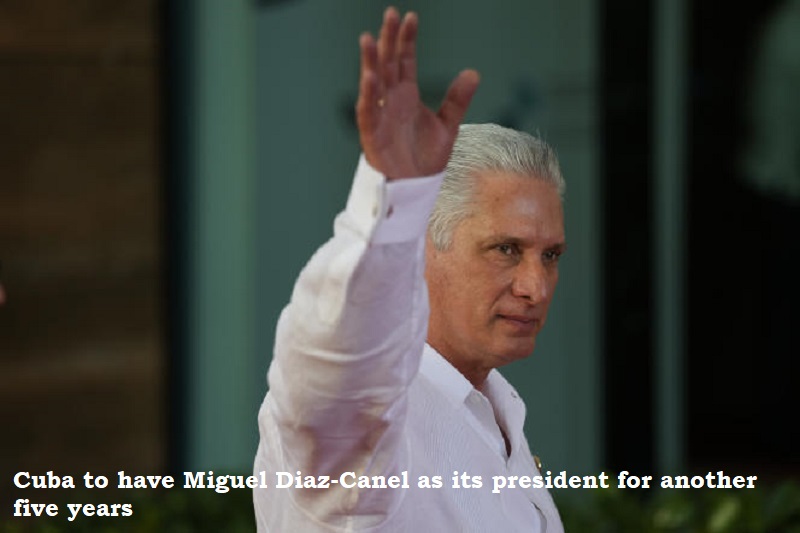
Miguel Diaz-Canel has been elected as Cuba’s president for another five-year term after he was the only candidate in a parliamentary vote. In Cuba, the Communist Party has a monopoly on power, and opposition is illegal. Diaz-Canel received 97.66% of the votes cast in the Communist Party-aligned National Assembly, making him the first non-Castro leader since the revolution.
The Cuban authorities had announced that all 470 legislators for the National Assembly had been elected on March 27, 2023. Voter turnout was 75.92%, with 90% of the votes cast being considered valid.
To be elected, candidates must still receive at least 50% of the votes. However, most parliamentary candidates are members of the Communist Party of Cuba (PCC). Opposition groups had encouraged voters to boycott the election, saying that it had no meaning in a one-party system with no opposition.
The United States embassy in Cuba criticized the vote as ‘undemocratic’ and stated that the Cuban people deserved real choices in real elections featuring candidates from more than a single political party.
Diaz-Canel’s second term as president is expected to include the regulation of the press and the right to protest in Cuba. These are controversial issues in Cuba, and Diaz-Canel’s government will have the power to pass laws related to them.

Post Your Comments